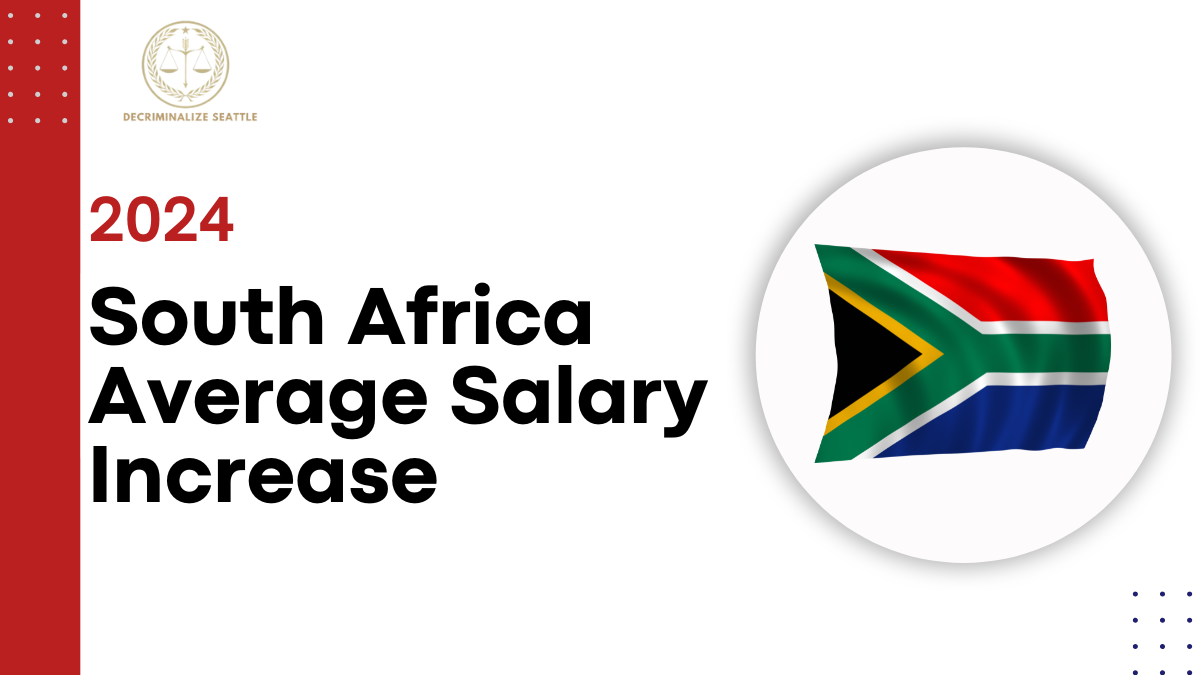In 2024, South African workers received a much-needed boost as average monthly salaries saw significant growth. By June 2024, the average salary reached R27,450, marking a 2.5% rise from March and a 4.8% increase from the previous year. This salary hike is particularly encouraging given the tough economic environment, offering some relief to workers in key sectors such as community services, business services, and manufacturing. The wage growth is a positive development amidst the ongoing challenges of high unemployment and inflation.
Despite these improvements, South Africa’s economic climate remains difficult. Nevertheless, the steady salary increase, as highlighted by the latest Quarterly Employment Statistics (QES) from StatsSA, suggests a broader trend of gradual economic recovery. Many workers benefit from this wage rise, which brings stability during financial uncertainty.
South Africa Average Salary Increase in 2024
The increase in salaries saw the average monthly wage in South Africa rise to R27,450 in June 2024 from R26,783 in March 2024, a 2.5% quarterly growth. On a year-over-year basis (comparing May 2023 to May 2024), the average salary grew by 4.8%. While inflation remains a concern, this growth in earnings provides some financial cushioning for employed individuals.
Monthly Salary Comparison:
| Month/Year | Average Monthly Salary (ZAR) |
|---|---|
| March 2024 | R26,783 |
| June 2024 | R27,450 |
| Year-on-Year | 4.8% |
Sectors Contributing to Salary Growth
Several key sectors have driven the growth in employee earnings, contributing to the overall rise in average monthly wages. StatsSA revealed that an additional R21.8 billion was paid out to workers during the last quarter, raising total employee compensation from R848 billion to R869.7 billion. The sectors that contributed the most to this rise include:
- Community Services: Significant growth
- Business Services: Moderate growth
- Trade: Moderate growth
- Manufacturing: Considerable growth
- Transport: Notable growth
- Construction: Noticeable growth
- Mining: Steady growth
These sectors have been pivotal in lifting the national average wage, providing financial relief to workers across industries and helping counterbalance the rising cost of living.
Employee Bonuses and Overtime
While salaries have risen, employee bonuses have sharply declined. Bonuses fell from R81.5 billion in March 2024 to R54 billion by June 2024, marking a 34% decrease. This drop is primarily due to the seasonal nature of bonus payouts, which are typically higher toward the end of the year.
In contrast, overtime payments increased over the same period. Overtime pay rose by R1.2 billion (4.2%) between March and June 2024, reaching R28.7 billion. On a year-over-year basis, overtime payments increased by 6.9%, reflecting an additional R1.8 billion. This rise indicates that many workers are taking on extra hours to supplement their income, underscoring their determination to navigate the challenging economic landscape.
Year-on-Year Growth and Grant Parity
The year-on-year increase in average monthly salaries (4.8%) mirrors the growth rate of South African Social Security Agency (SASSA) grants. Though these increases do not fully offset inflation pressures, the parallel growth between wage earners and grant recipients signifies a modest step toward reducing income inequality. This alignment between different economic groups helps create a more balanced approach to supporting both working citizens and those reliant on government aid.
Comparison Table:
| Factor | Increase Rate |
|---|---|
| Salaries (May 2023 to May 2024) | 4.8% |
| SASSA Grants | 4.8% |
Ongoing Challenges Despite Positive Trends
While salary rise is undoubtedly positive news, many South Africans still face significant financial difficulties. Even with the wage increase, a large portion of the population struggles to cover basic living expenses as inflation continues to increase the costs of essential goods and services. Additionally, unemployment remains a pressing issue, with over 40% of the able workforce currently without jobs. Many households depend heavily on SASSA grants for survival, particularly in low- and middle-income brackets.
The proposed Basic Income Grant, set to replace the SASSA Social Relief of Distress (SRD) grant by 2026, is expected to alleviate some of these financial hardships. However, achieving long-term economic stability will require more comprehensive efforts, such as fostering job creation, improving labor market conditions, and supporting small and medium-sized enterprises (SMEs). Addressing these underlying issues will ensure sustained economic growth and financial security for all South Africans.
Click here to know more.

Arvind is an avid automobile enthusiast who is passionate about all things on wheels. From the latest car models to classic vintage rides, I love exploring the automotive world’s intricate details and engineering marvels. With years of experience in test-driving, reviewing, and analyzing cars, I provide readers with comprehensive insights and honest opinions.
